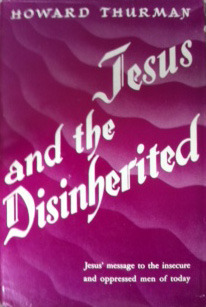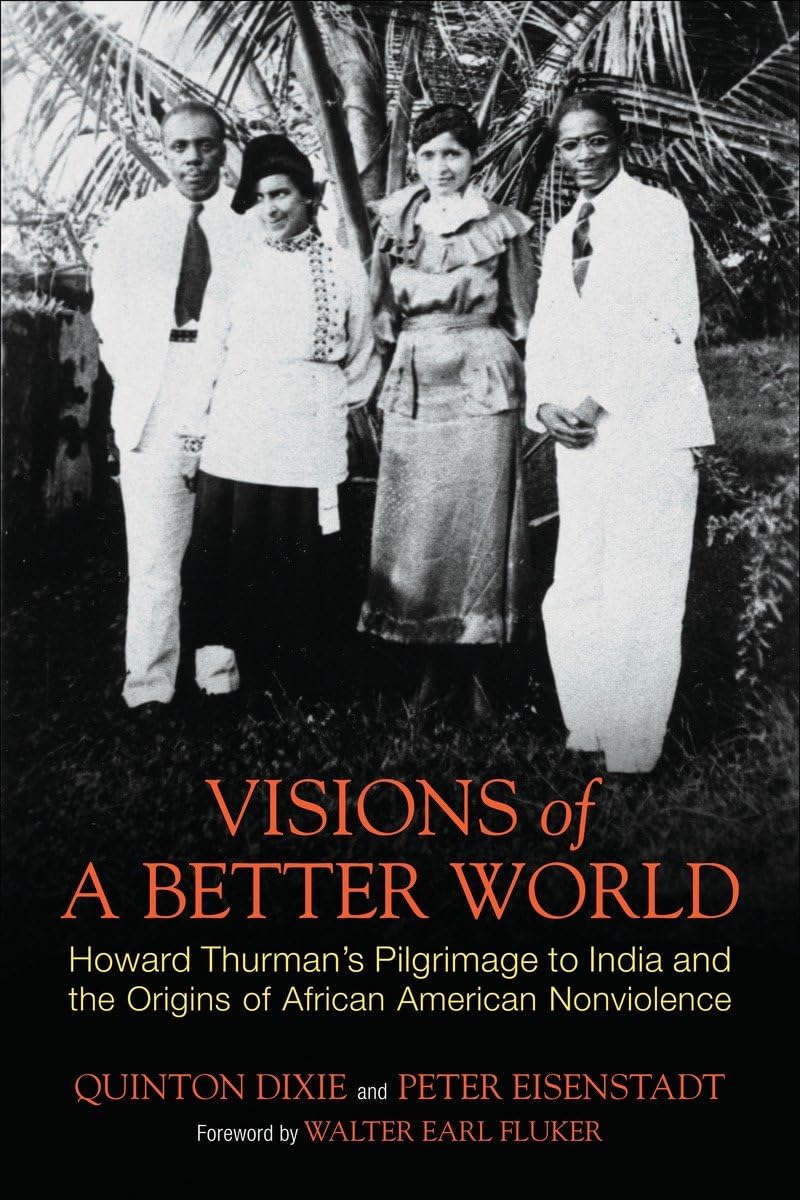 His courage and oratory are almost enough to explain how he came to lead the Civil Rights Movement (CRM). We must not, however, overlook his profession: he was the Reverend Doctor Martin Luther King, an academically trained preacher in the Baptist tradition. Such titles bestow an odor of sanctity. They didn’t deflect the assassin’s bullet—ultimately set into motion by whom, we may never know[1]—but they shouldn’t inhibit us from questioning his message.
His courage and oratory are almost enough to explain how he came to lead the Civil Rights Movement (CRM). We must not, however, overlook his profession: he was the Reverend Doctor Martin Luther King, an academically trained preacher in the Baptist tradition. Such titles bestow an odor of sanctity. They didn’t deflect the assassin’s bullet—ultimately set into motion by whom, we may never know[1]—but they shouldn’t inhibit us from questioning his message.
Unfortunately, the latter was the Social(ist) Gospel (SG), not the Gospel of Jesus Christ, the wolf of socialism in sheep’s clothing of biblical passages. King’s education was downstream to the theology of SG’s American fountainhead, Walter Rauschenbusch (1861–1918), who at Rochester Theological Seminary had studied under the orthodox Reformed Baptist theologian Augustus Hopkins Strong (1836–1921).[2]

More immediately, King came under the influence of Reinhold Niebuhr (1892-1971) and Howard Thurman (1899-1981).[3] Neither man held Jesus’ view of Scripture. The Bible may be profound, insightful, inspiring, they thought, even “inspired,” but not breathed-out by God, the status which it claims for itself, and all that follows from that status.[4] Through reading Thurman the young King discovered the maverick Hindu Mohandas Gandhi.[5]
“So what?,” you may ask. Here’s what: King denied Jesus’ divinity[6] and resurrection[7]. The Bible was not, for King, the inerrant word of God. Such an opinion is nonsense, the product of a naïve, bygone era. For him, it was quite errant.
The moralistic movement that transformed the United States was led by a man who instrumentalized the symbols of Christian orthodoxy to impress his egalitarian, in the end socialist, movement upon the impressionable. Had he lived as long as Jimmy Carter, I do not doubt that King would have come around to the (slightly) older Baptist’s view that Jesus would have approved gay marriage.[8]
In my book, that makes King a heretic, one who denies truths essential to the Christian faith.

King developed his theological liberalism at Boston University (BU) along the existentialist lines of theological superstar Paul Tillich, another socialist “Lutheran,” i.e., a walking disaster area. In 1955, King wrote A Comparison of the Conceptions of God in the Thinking of Paul Tillich and Henry Nelson Wieman, in fulfillment of the dissertation requirement for his Ph.D., the union card that requires ordinary mortals to address its recipient as “Doctor” (e.g., “Doctor Jill Biden”). After an investigation, BU concluded that King had improperly used sources without attribution but determined that, despite evidence of plagiarism, his study made an original contribution to scholarship. It was “good enough,” I suppose.
Lifting the work of others was not the worst of the Reverend’s foibles. When President Trump opened some files on President Kennedy’s assassination in 2019, King scholar David Garrow examined them. In an article, Garrow describes the contents of FBI tapes of King’s adulterous episodes. In one of them, King is heard jocularly encouraging another Christian minister in his rape of a female congregant.[9]
Explaining his moral criteria for hiring and promoting officers in his business, presidential candidate Ross Perot (1930-2019) rhetorically asked, “How can I trust a man if his wife can’t?”[9a] May we not ask the same of King?

King could have honestly said, “Some of my best friends are Communist bagmen.” Stanley Levison (1912-1979), King enthusiast, attorney, financier, and cash conduit for the Communist Party USA, denied his membership in that Soviet-financed outfit, but how credible is such a denial?[10] Some of Levison’s best friends were KGB officers.
King’s socialist orientation led him into the Communist orbit, but the Party did not require him to join it formally any more than it needed Paul Robeson to do so. Communists who were friendly and useful to the CRM were all right with King. It hardly mattered where the money came from. When John and Bobby Kennedy told King to ditch Levison, King verbally assented but kept Levison on anyway.[11]
It is fitting that the second inauguration of President Donald J. Trump, the beginning of the end of the nightmare of the last four years—itself the issue of at least a half-century of subversion and intimidation, prolonged by King epigones like Jesse Jackson, Al Sharpton, and countless other mountebanks—should coincide with the federal holiday honoring Martin Luther King (as no other individual is honored).[12]
In his inauguration speech today, President Trump praised King’s noble goal of a color-blind society, which his self-appointed champions in the Democratic Party have undermined over the past half-century via “affirmative action” and “diversity, equity, and inclusion” policies.
Trump has declared the latter “null and void” in any area of government over which he has any influence. Hiring will be color-blind, yes, but also merit-based. King’s egalitarian socialist policy prescriptions, wherever they were implemented, never made any intended beneficiary better off. Whoever benefited from them did so at the expense of others.
America’s Liberation Day, as Trump has declared today, has arrived in spite, not because, of King’s political influence. Trump, too, had a dream and was almost assassinated on his way to making it come true. By every relevant metric, the movement to make America once again strong, wealthy, healthy, proud, and safe—in a word, great—will put the CRM in history’s shade.

Notes
[1] Yesterday President-elect Donald J. Trump vowed at a pre-inauguration rally “to release a trove of long-hidden government files on the assassinations of John F. Kennedy, Robert F. Kennedy, and Martin Luther King Jr.” Ryan King, “Trump vows to release JFK, RFK and MLK assassination files in massive transparency push,” New York Post, January 19, 2025. Let’s see what comes of that vow.
[2] See my “Bernard Lonergan had it backwards; Augustus Hopkins Strong, about right,” December 4, 2018.
 [3] A teenage King first met Thurman in 1944 during a visit to Atlanta’s Morehouse College. Thurman, a Morehouse alumnus and theologian, was visiting. Thurman’s Jesus and the Disinherited shaped King’s theological understanding of nonviolent resistance. While attending Crozier six years later, King served as a ministerial intern at First Baptist Church in East Elmhurst, Queens, New York, not two miles from where I sit in Jackson Heights.
[3] A teenage King first met Thurman in 1944 during a visit to Atlanta’s Morehouse College. Thurman, a Morehouse alumnus and theologian, was visiting. Thurman’s Jesus and the Disinherited shaped King’s theological understanding of nonviolent resistance. While attending Crozier six years later, King served as a ministerial intern at First Baptist Church in East Elmhurst, Queens, New York, not two miles from where I sit in Jackson Heights.
[4] “All Scripture is breathed out by God (θεόπνευστος, theopneustos) and profitable for teaching, for reproof, for correction, and for training in righteousness, that the man of God may be complete (ἄρτιος, artios), [fully] equipped (ἐξηρτισμένος, exērtismenos) for every (πᾶν, pan) good work.” 2 Timothy 3:16-17
[5] Thurman met with Gandhi in India in 1936. Whatever else Gandhi was, he was no Christian. But then, one might say Gandhi was a Hindu the way King was a Christian: “I am a Hindu, I am a Muslim, I am a Christian, I am a Jew, and so are all of you.” Mohandas Gandhi, Young India (1925). See Quinton Dixie and Peter Eisenstadt, Visions of a Better World: Howard Thurman’s Pilgrimage to India and the Origins of African American Nonviolence, Beacon Press, 2011 and their article, “When Howard Thurman Met Mahatma Gandhi: Nonviolence and the Civil Rights Movement, Beacon Broadside, October 2, 2014.
he was no Christian. But then, one might say Gandhi was a Hindu the way King was a Christian: “I am a Hindu, I am a Muslim, I am a Christian, I am a Jew, and so are all of you.” Mohandas Gandhi, Young India (1925). See Quinton Dixie and Peter Eisenstadt, Visions of a Better World: Howard Thurman’s Pilgrimage to India and the Origins of African American Nonviolence, Beacon Press, 2011 and their article, “When Howard Thurman Met Mahatma Gandhi: Nonviolence and the Civil Rights Movement, Beacon Broadside, October 2, 2014.
[6] “The orthodox attempt to explain the divinity of Jesus in terms of an inherent metaphysical substance within him seems to me quite inadequate. To say that the Christ, whose example of living we are bid to follow, is divine in an ontological sense is actually harmful and detrimental. . . . [T]he orthodox view of the divinity of Christ is in my mind quite readily denied. The true significance of the divinity of Christ lies in the fact that his achievement is prophetic and promissory for every other true son of man who is willing to submit his will to the will and spirit of God. Christ was to be only the prototype of one among many brothers.” King, “The Humanity and Divinity of Jesus,” Crozier Theological Seminary, November 29, 1949 to February 15, 1950. Martin Luther King, Jr. Research & Education Institute, Stanford University.
[7] “This doctrine, upon which the Easter faith rests, symbolizes the ultimate Christian conviction: that Christ conquered death. From a literary, historical, and philosophical point of view, this doctrine raises many questions. In fact, the external evidence for the authenticity of this doctrine is found wanting.” The go-to scholar on King’s heterodoxy is Virgil Walker: “What’s the Truth About Martin Luther King, Jr.?,” Christ over All, July 12, 2023. Here is Walker’s ten-minute video presentation: The Truth Behind MLK’s Social Gospel (2023).
[8] See “Jimmy and Joe: Progressive bookends of a (soon-to-be-bygone?) era,” AnthonyGFlood.com, January 12, 2025, wherein I cite, “Jimmy Carter Says Jesus Would Approve of Gay Marriage,” Huffington Post, July 7, 2015.
[9] David Garrow, “The Troubling Legacy of Martin Luther King: Newly-revealed FBI documents portray the great civil rights leader as a sexual libertine who ‘laughed’ as a forcible rape took place,” Standpoint (UK), June 2019, 30-37. Garrow posts the article on his website. Clicking the linked title will download a PDF of the article.
[9a] Quoted in Mary McGrory, “Perot’s Bounty is on Bush,” The Washington Post, April 27, 1992.
[10] See Allan H. Ryskind, “Why JFK had to wiretap Martin Luther King,” Washington Times, June 19, 2019 and Ben Kamen, Dangerous Friendship: Stanley Levison, Martin Luther King Jr., and the Kennedy Brothers, Michigan State University Press, 2014. See Kamen’s article, “Martin Luther King’s Dangerous Friendship,” Forward, August 19, 2014
[11] “For the previous 18 months [before November 8,1963, two weeks before John F. Kennedy’s assassination], the FBI had insistently told [AG Robert] Kennedy that King’s closest and most influential adviser, New York attorney Stanley D. Levison, was a ‘secret member’ of the Communist Party USA (CPUSA). Kennedy’s aides, and finally his brother—the President of the United States—warned King to cease contact with Levison, but King’s promised compliance was dissembling: he and Levison communicated indirectly through another attorney, Clarence Jones, who, like Levison, was himself already being wiretapped by the FBI. Presented with evidence of King’s duplicity, plus FBI claims that King had told Levison that he was a Marxist, a reluctant Attorney General approved the FBI’s request to place King under direct surveillance too.” Garrow, “Troubling Legacy,” 30.
[12] Today is only the third time that Presidential Inauguration Day, which falls on January 20 every four years, coincides with Martin Luther King Jr. Day, observed on the third Monday of January.
